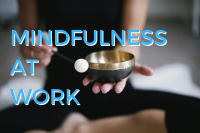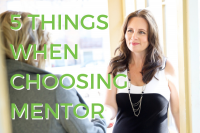
Alison Watkins
AUTHOR: CATHERINE FOX
If we want to see women taking on more leadership jobs in our largest organisations then Alison Watkins, CEO of Coca-Cola Amatil, believes it’s high time we got serious. “We need a much more robust discussion about the kind of society we want,” she says, “and we generally haven’t done that very well in Australia.
“We’ve had a great discussion about women on boards and are making good progress there,” she says. “We really need that discussion to progress to the nature of work in our large organisations. Should we have 50 per cent of the top 100 companies run by women?
“Should we expect that and if so, when? If that’s something we thought was right then we should be doing some things very differently.”
That includes making sure women are represented in all roles across organisations, instead of clustering in areas like human resources and marketing.
“We would have women running factories and leading sales teams — everything that enables them to progress through the organisation while developing a rounded set of experiences, including profit and loss experience,” she says. “That creates a sustainable path through senior roles and into the CEO role, instead of people playing God when it suites them and appointing a woman.”
There’s a big difference between having a genuine pipeline of women candidates, as Watkins points out, instead of relying on the current “leadership lottery”, as it’s sometimes called, which depends on the attention and will of senior, mostly male, executives to get women appointed.
Watkins knows how the right skills set you up for success, because she worked out what was needed early on in her career. Putting her hand up for a profit and loss role when she worked at ANZ was prompted in part by her time at consulting firm McKinsey & Company, where it became apparent to her that the people who actually got to make stuff happen were running a business or had bottom-line responsibility.
In functional roles your input relies on your persuasive ability, Watkins says, and while that’s important, while still in consulting, she decided she ‘‘would like to be one of the people who can do things and make things happen”.
She was advised it would be a hard transition to make. At the time there was a view in Australia that consultants were too analytical and not decisive enough. As a woman, there was an assumption you were even less decisive while ‘‘leaders were strong and made the calls”, she says.
It didn’t put her off at all. While working at ANZ in a strategy role she made it clear to then CEO John McFarlane that she was up for the challenge of profit and loss responsibility: “Eighteen months later he gave me the opportunity to do the regional banking role.”
From there Watkins went on, among
other things, to run juice company Berri and GrainCorp. She’s also been a director at ANZ, Woolworths and Just Group.
Not that any career at such senior levels is without drama and hard-won experience. GrainCorp was going through some turbulent times — with a thwarted takeover — when she resigned to join CCA, where her job is to turn around the sprawling business.
She’s clearly up for a challenge but is the first to admit her leadership style has been built on watching others — particularly when she was consulting, where it was clear there were times you needed to stick to your values.
“Sometimes in large organisations you feel a bit insecure and you are trying to prove yourself and don’t necessarily have confidence to stand up and do the right thing,” she says. “So the encouragement you get to use values as the ultimate guide to decisions is important.
“Those things have given me the confidence to come into a situation and know that everyone wants to do the right thing. Not just me.”
The other plank in her approach to leading is being very clear about who does what, and giving support where it’s needed.
“I’ve certainly learnt over the years the importance of creating an environment where there is high ownership of direction and plans,” she says. “And making sure people are really set up for success, with the resources and skills. I’ve been in situations where people ask you to do the impossible and then walk away and leave you and that’s not a comfortable place to be.”
Also, it’s key to find early on “the people who know what’s going on and whose judgment you trust,” she adds.
But most of her professional career would have been almost impossible without support at home. Having women represented at all levels in the workplace has to be matched by shifts in expectations about who does the caring and housework too.
“Broader social change is still happening,” Watkins says. “If we want women to be equally represented at all levels and in all functions we have to have men equally represented in all activities at home.
“The more senior you get in a large organisation the more demanding it becomes and the harder it is to escape. You need to be on call all the time.”
Trying to manage all the responsibilities inside and outside the organisation was simply not enjoyable.
“I certainly think the only reason I’m doing what I’m doing is because as a family, we’ve been able to plan for it,” Watkins admits.
While husband, Rod, has been the caregiver for many years, which has worked well for their family, the change in roles has pushed up against entrenched social norms.
You need a lot more Rods in the world, Watkins believes — people who are not expected to focus only on a paid job and who are happy and feel valued by society as caregivers. And that means attitudes need to change.
When Rod decided to take on the caring role, his mother wanted to know what to tell her bridge friends about his change in circumstances. It’s not an uncommon reaction. But she’s fine with the situation now, Watkins adds.
Although many large organisations have made an effort to be flexible and make it easier for men and women to juggle work and home responsibilities, it’s just a start.
“The big wave of change is still to occur and will come from a shift in society’s expectations — expectations we will have to make explicit decisions about,” Watkins says. “We’ve moved on from women saying they want to be like men … But women will only be able to do more inside organisations when they are not doing everything inside the home as well.”
The advocacy group Chief Executive Women is likely still to be needed in another 30 years, but Watkins believes it could be more about celebrating the achievements of organisations, or societal change towards more gender equality.
Watkins has recently had the chance to watch how some of the changes around careers and jobs have unfolded for a new generation through her daughter and son.
Her daughter is about to start a job with PwC. Watkins finds that these days young women look at a much broader set of options, partly because they are often encouraged to be ambitious by their schools.
“We didn’t have any career counselling and people only thought about nursing or teaching,” she recalls of her school years in Tasmania. No one encouraged her cohort to become lawyers or doctors.
But career aspirations and work have also changed in professional services, where Watkins started as a chartered accountant.
“The nature of the work is very different … in many ways it has become more automated and commoditised,” she says. “The hands-on coaching and mentoring that existed in professional services when I started … well, it’s a bit different now. And many graduates no longer see their destiny as staying in one firm and becoming a partner.”
But she’s slightly puzzled about the choice her son recently made — taking a year off from his university degree to set up a YouTube channel. Not that she and her husband tried to stop him.
“I can see him building an interesting career that is completely different to what I did,” she says.
He’d certainly do very well if he did happen to take a leaf from his mother’s career book.
Originally published on The Australian, 3rd December 2015. View the original article.









Leave A Comment